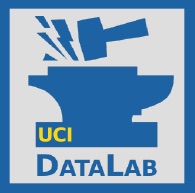
Research in the Smyth Group
Research projects and interests for our Datalab group span a variety of topics involving fundamental research in the areas of machine learning and AI, including predictive modeling, deep learning, Bayesian methods, time-series and sequence modeling, spatial data analysis, large language models, and more. Our group has a long and successful history of developing new methods and algorithms to address important problems in AI and machine learning, building on foundational ideas from probability, mathematics, optimization, etc.
We are also passionate about our research having a real-world impact. Our research projects often involve working with expert collaborators, developing new machine learning approaches to important problems in a variety of areas such as medicine, climate science, and education
Here are some of the topics that we are currently interested in:
- Human-AI collaboration: developing new theories and algorithmic frameworks for how models and humans can learn to collaborate in order to jointly solve problems in an effective manner. Joint work with Mark Steyvers and his group in the UCI Cognitive Sciences department.
- Robustness, calibration, and uncertainty quantification for deep learning: for example, assessing how well language models can express uncertainty, both numerically and verbally, and developing new methods that are more reliable and robust in this context. Joint work with Sameer Singh's group.
- Algorithmic fairness in machine learning: developing methods for example that can handle the common practical problem of missing information in sensitive attributes such as age or race. Joint work with collaborators at NYU.
- Deep learning for sequence and time-series prediction, such as developing efficient and accurate algorithms that make reliable predictions beyond the next event in a sequence or series. Joint work with Stephan Mandt's group.
- Spatio-temporal deep models for point process data, with applications to problems in climate science and epidemiology. Part of a collaboration with the Climate-Energy-Water Solutions (CLEWS) group at UCI.
- Diffusion generative models for data other than images, for example for time-series data or for tabular data sets
Research on these topics is supported by a combination of grants from sources such as the National Science Foundation, the National Institutes of Health, NASA, the HPI Center for Machine Learning and Data Science at UCI, various student fellowships, and research gifts from industry.
PhD students interested in joining our Datalab research group should apply to either the Computer Science or Statistics PhD programs at UC Irvine. Students with strong quantitative backgrounds are particularly encouraged to apply (with undergraduate or Master's degrees in Computer Science, Electrical Engineering, Statistics, Mathematics, Physics, or related areas).